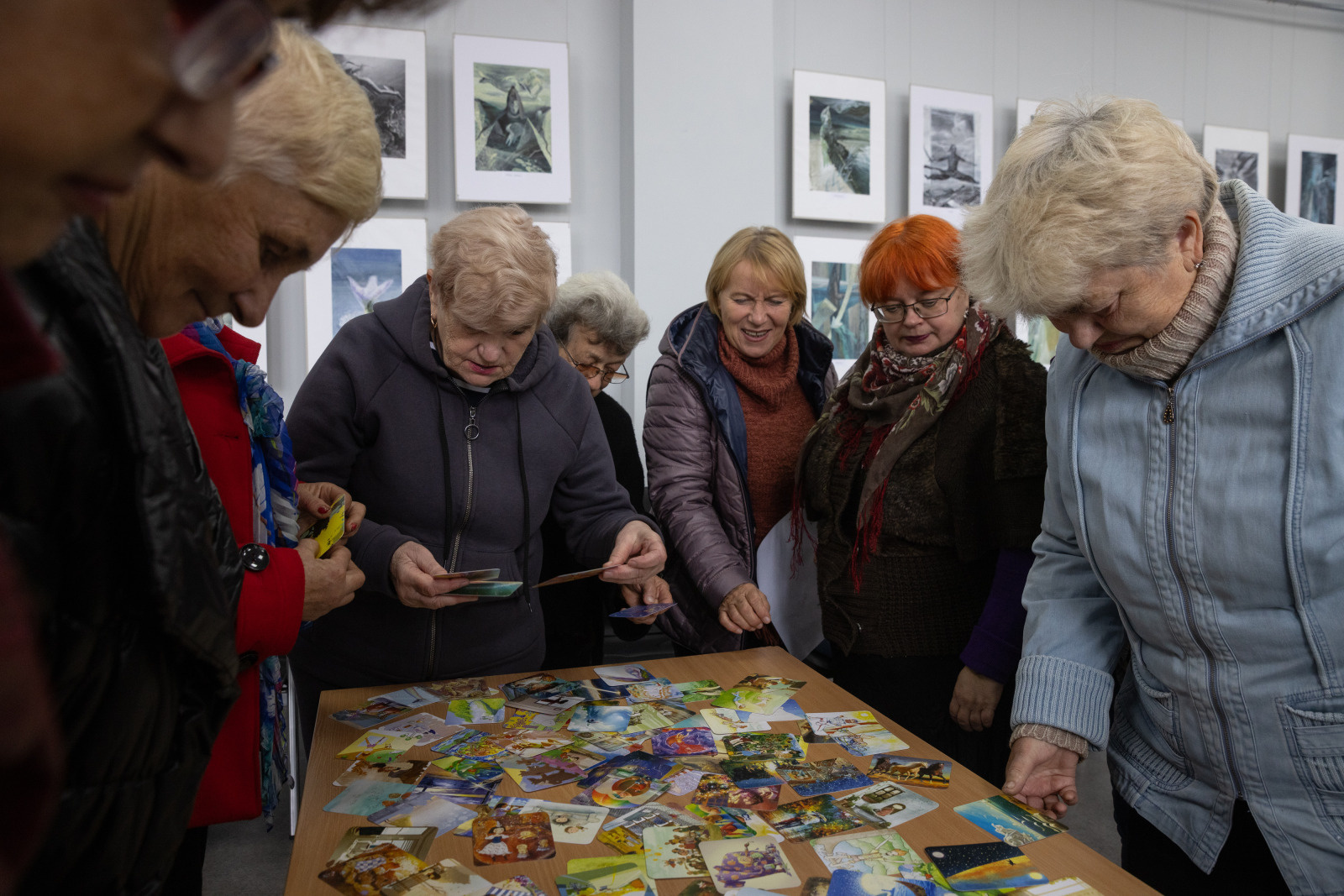Two years of humanitarian aid in Ukraine
Humanity & Inclusion provides rehabilitation care and psychological support, while playing a crucial role in supplying emergency equipment thanks to its qualified team.

Irena Strelets, psychologist at Humanity & Inclusion, leads a stress resistance training session for healthcare professionals at the Dnipropetrovsk pediatric hospital. October 2023. | © T. Nicholson / HI
Two years after the invasion of Russia, the front line in Ukraine seems to have come to a standstill. Yet many regions, especially in the east of the country, continue to suffer armed violence. In all, no fewer than 14.6 million people are in urgent need of humanitarian aid. It is above all the most vulnerable people, such as people with disabilities, who are struggling to access basic services, while health and protection needs are enormous.
Two years of intense fighting and bombing have left their mark on both the country itself and its citizens. Civilian infrastructure has been severely damaged in many parts of Ukraine. Access to electricity, telecommunications, food, water, heating and medical care is very limited in many areas. In addition, around 10 million people are in need of psychological support in a war that never seems to end. Humanity & Inclusion has been active in humanitarian aid since February 2022 and has expanded its scope of action by establishing offices in six cities in Ukraine, in addition to Kiev: Kharkiv, Poltava and Dnipro in the east, Mykolaiev in the south, and Lviv in the west of the country. The organization focuses on healthcare, emergency supplies, inclusive aid and raising awareness of the dangers of explosives weapons.
Rehabilitation care and psychological support
In reception centers, orphanages, health centers and nine hospitals in Lviv, Kharkiv and Dnipro, Humanity & Inclusion offers rehabilitation care to injured people, people with disabilities and displaced persons who have no access to such services. The organization also provides training for healthcare professionals in specialized facilities such as burn treatment centers and follow-up centers for amputees. The capacity of several hospitals is being strengthened to cope with the large number of wounded.
Humanity & Inclusion also provides psychological support for those most affected by the war: families, the elderly and displaced persons. Group discussions offer them a horizon for the future, even if the end of the conflict in Ukraine remains uncertain. This help is provided mainly in the reception centers of Dnipropetrovsk, Poltava and Kharkov, in the east of the country.
Emergency equipment
Humanity & Inclusion contributes to the running of the reception centers by providing emergency supplies such as sheets, soap and hygiene products. In addition, individual assistance is offered to children, the elderly and the disabled to meet their specific needs. In addition, financial assistance is provided for the purchase of other basic necessities.
Humanity & Inclusion has a well-established logistics network and supports other humanitarian organizations by storing and transporting emergency supplies. It focuses in particular on the safe transport of medical equipment to areas in the immediate vicinity of the front line.
![]()
 Dangers of unexploded ordnance
Dangers of unexploded ordnance
Displaced families returning to their homes run a high risk of being exposed to shelling and shooting. In addition, unexploded ordnance left over from previous attacks represents a real danger. To better protect the population, Humanity & Inclusion organizes awareness-raising sessions to help people protect themselves against the dangers of the conflict.
The organization also runs sessions on the dangers of unexploded ordnance for aid workers and volunteers in Chernivtsi, Vinnytsia, Poltava, Dnipro and Kharkiv, in eastern Ukraine.
In addition, Humanity & Inclusion offers training in inclusive assistance to other humanitarian organizations. In crisis situations like this one, vulnerable people such as people with disability and elderly people are all too often forgotten, and often find themselves without access to humanitarian aid.
In Germany
In Germany, people with disabilities who have fled the conflict receive support via online information sessions. These sessions guide them to access appropriate medical care and inform them about the support system for people with disabilities in Germany. A telephone helpline has also been set up to help them with urgent problems.
Some figures (since February 2022):
- Nearly 16,000 rehabilitation sessions provided
- 540 healthcare professionals received training in physical rehabilitation and psychological support
- 6,700 people received psychological support
- 11,700 hygiene kits supplied to displaced persons and other vulnerable people
- 3,200 awareness-raising sessions on the dangers of unexploded ordnance were organized




